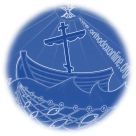It is no exaggeration to say that the doctrine of “exclusively the Bible” - a conventional translation - is the cornerstone or backbone of Protestant theology. Every person who believes in the teachings of the Protestant Reformation (whether he calls himself a Protestant or not) has built his theological thought on this principle. More than any other faith. The doctrine of “the Bible exclusively” defines Protestantism. Like other Protestant doctrines, the doctrine of “exclusively Biblical” means different things to different Protestant church groups. Therefore, it is impossible to define our understanding of this doctrine that is universally accepted by all Protestants everywhere. On the one hand, we have reformers such as Luther and Calvin who taught that the Holy Scriptures are the sufficient source of saving knowledge; On the other hand, there are extreme reformists who insist that the Holy Scriptures not only constitute the sufficient source of teaching, but are also the sole guide for worship and the life of fellowship.
Thus, according to this type of “exclusively Bible” teaching or definition, the Bible contains not only everything we want to know or can know about it, but everything we need to know about it.
Whatever the definition of the doctrine of “the Bible exclusively” among Protestants, we can say that both definitions oppose attributing any authority to church tradition. Thus, the doctrine of “the Bible exclusively” is not just an affirmation of the Holy Bible as much as it is merely an affirmation of the rejection of church tradition and the life and witness of the Holy Spirit in the church. In other words, since the doctrine of “the Bible exclusively” is the product of the movement called the Reform Movement that split from the Catholic Church, and since this movement aimed to sever any relationship or connection it had with the Catholic Church in terms of form, content, and teaching, and in terms of worship and doctrines And theology and various administrative church organizations. This is why this reform movement rejected everything that had any connection to the Catholic Church, and only accepted the Bible as the sole source of education.
The reformers thought that by doing this, by returning to the Bible alone and accepting it as the sole source, they were returning to the origin of Christianity and the origin of the early church. Their jealousy may have been sincere, but its result was disastrous. The funny and ironic thing here is that this same principle that the reformers used to return to the purity of the early church was not known in the early church! The doctrine or idea of “the Bible exclusively” was invented by the Reformation movement in the sixteenth century, and no father of the Church or any council of the early Church mentioned or confirmed that the Holy Scriptures by themselves, without any reference to the Church, are a sufficient basis for doctrine and faith. Even the Bible itself contradicts the doctrine of “the Bible exclusively,” as we will see. Therefore, the “exclusively Biblical” Reformation doctrine was an invention of the Reformers themselves. This means that from the glorious day of Pentecost until October 31, 1517, that is, about 1488 years, this type of theology that Protestants brag about as authentic theology never existed. In other words, the first church that the Protestants wanted to return to had a theology completely different from the theology that the Protestants adopted or invented.
In order to understand the doctrine of “exclusively the Bible” correctly, we must understand the assumptions made by this doctrine and respond to them.


